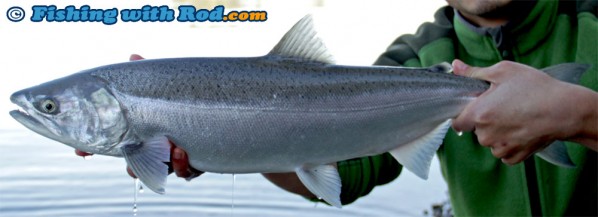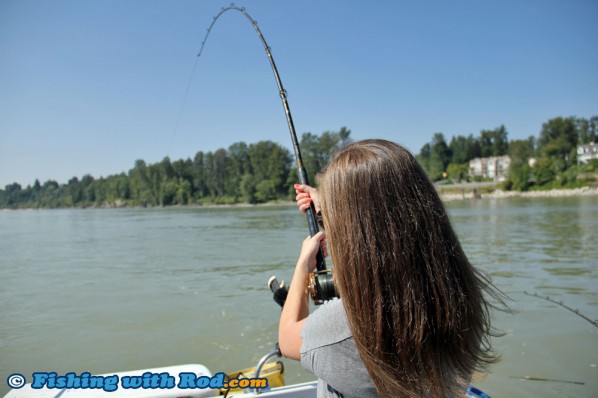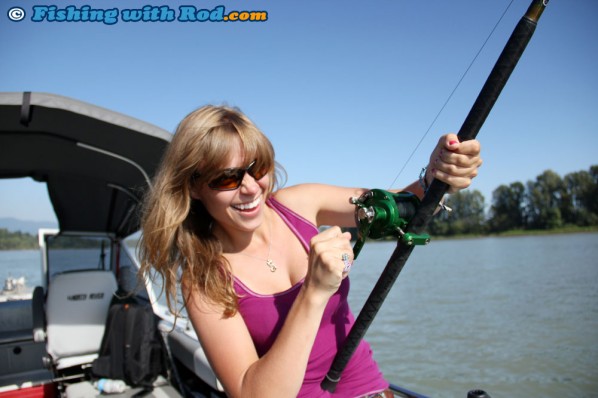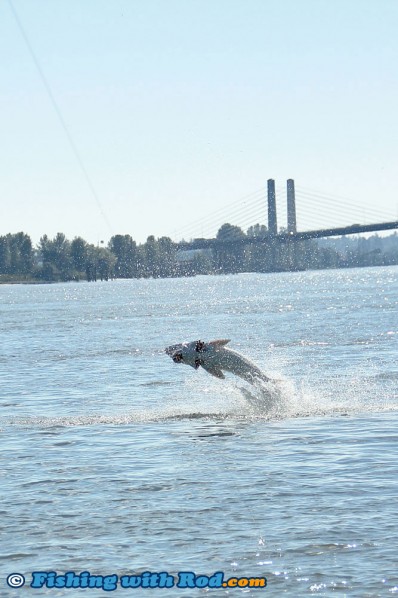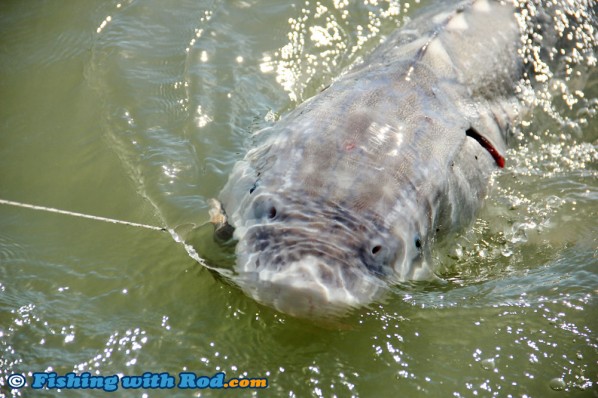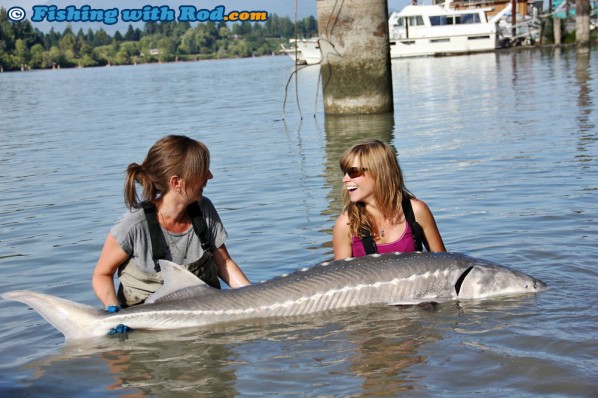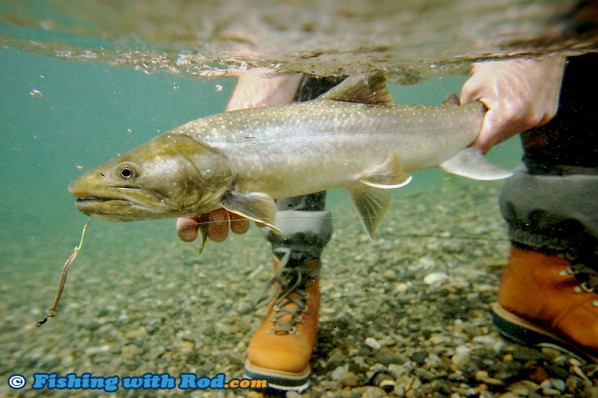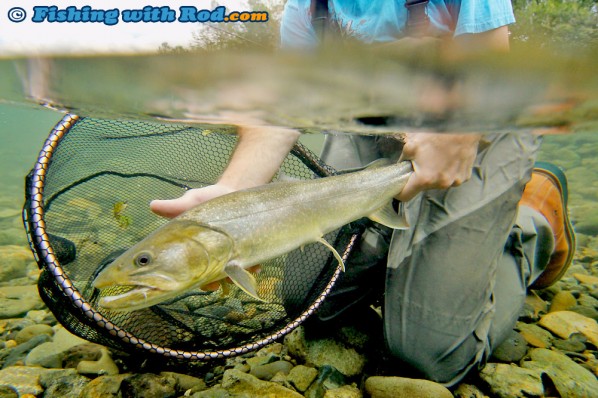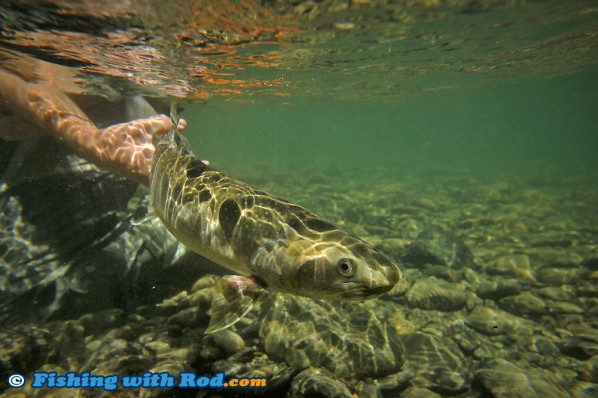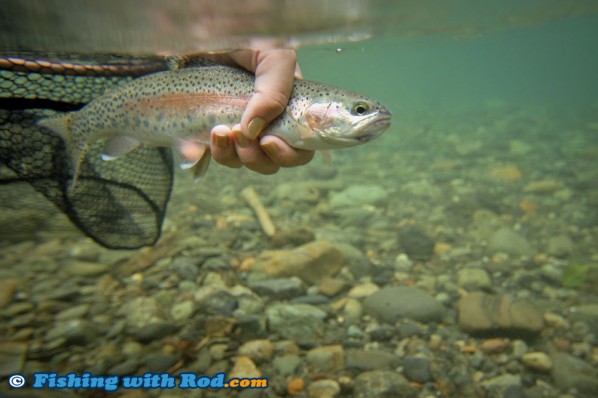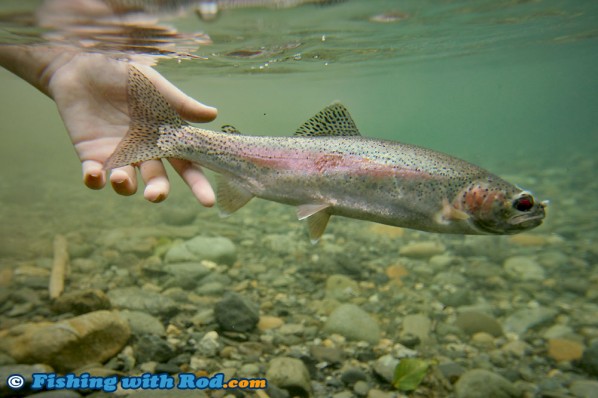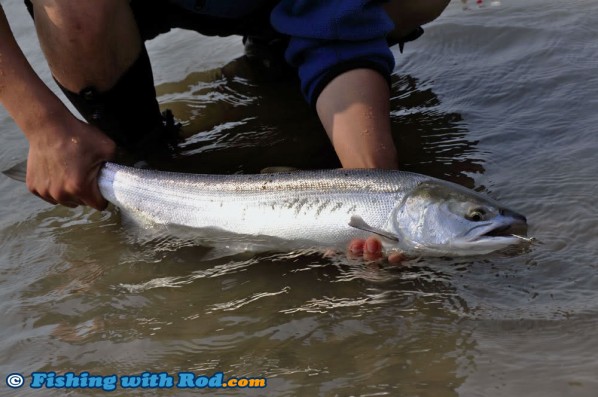
Whether you are into fishing or not, by now you most likely have heard about the anticipated large Fraser River sockeye salmon return this year. Fish returning this year are offsprings of the exceptionally large run in 2010, so it should not be a surprise to see another high return in the same cycle.
The current estimated range of this year’s return is 7.5 million to 75 million fish. 7.5 million fish being the most likely number, while 75 million fish is least likely achieved. Most reports prefer the 75 million number, but realistically the more accurate predicted return size is between 20 and 30 million fish. The large range of estimates is the result of uncertainties caused by the much larger return in 2010.
Recreational sockeye salmon fishing in the non-tidal portion of the Fraser River in Region Two begins on August 6th. Most consider this as a harvest fishery, as the fish rarely bite due to poor water visibility so they are mostly flossed (accidentally hooked in the mouth) and retained. It is a popular fishery, and on a good return year like this all participants can enjoy taking home some fresh sockeye salmon. Here are some important notes which I think you should be aware of before trying this fishery out.
Before heading out to catch your sockeye salmon, the very first thing you should be doing is to buy a freshwater fishing licence and salmon conservation surcharge, which allows you to retain your catches. You can do so by going to www.fishing.gov.bc.ca. The money you spend gives you access to all freshwater fisheries in British Columbia and it is also good investments for the recreational fishing community. Funds from the licences are allocated to the Freshwater Fisheries Society of BC and Habitat Conservation Trust Foundation. Both organizations are responsible for the development of BC’s freshwater recreational fisheries and conservation projects.
If the return becomes as large as predicted, then it is possible that the daily quota will be raised from the current 2 fish per day to 4 fish per day. Earlier this year, members of the Sport Fishing Advisory Committee in the Fraser Valley have made this recommendation to Fisheries and Oceans Canada. By raising the limit to 4 fish per day, it allows participants to quickly catch their limit and leave, so other participants can also have a chance to fish. Secondly, when the daily quota is kept at two, participants are likely to continue fishing after retaining the limit for a chance to retain a chinook salmon. In the process, too many sockeye salmon are often caught and released, which only does more harm than good. By raising the limit to four sockeye salmon per day, hopefully it can eliminate this behaviour. If the daily quota is changed during the season, we will have it published on the website or Facebook page so be sure to check back often before each trip.
If you decide to partake in this fishery, you should know that there are other species migrating among these sockeye salmon. Wild coho salmon and steelhead, are encountered sometimes and they need to be released with extreme care. Too often fish are dragged onto the beach immediately prior to being identified. In some cases, fish are not identified correctly and protected species are killed. Wild coho salmon and steelhead travelling in the Fraser River often come from endangered stocks, so it is up to every participant to ensure the survival of these fish. To do so, you should carry a landing net so the fish can be scooped and kept in the water prior to being identified. Know your fish species so you can identify each fish correctly. When a fish cannot be identified, please release it.
The Fraser River sockeye salmon fishery can be a family friendly, but whenever fishing pressure is high, an unpleasant environment can develop quickly. In the past, conflicts among recreational fishery participants and with First Nation fishers have occurred. In 2009, a serious incident between a band chief and two recreational participants resulted in the creation of the Fraser River Fisheries Peacemakers. This group is made of key representatives from the recreational fishing communities and First Nations in the Fraser Valley. Together, the group has developed many excellent initiatives in the past four years. One of these accomplishments is the document Fishing Together on the Fraser, which is designed for those who are trying out the Fraser River sockeye salmon fishery for the first time. One important resource available in this document is the fishing map produced by the Fraser Basin Council, which shows various fishing spots, First Nations’ land, boat launches, and other important landmarks. You can download these resources at the following links.
While there is a lot of attention on the good fishing, too often water safety is neglected. Quite often we see participants standing in waist deep water and forgetting how turbulent and dirty the Fraser River is during this time of the year. One slip can sweep you away and help is not always nearby. Personal floatation devices are inexpensive and can keep you alive if you are swept away. Better yet, you can avoid getting into these situations by not wading too far out. Observe the current in the river prior to walking in the water.
The high abundance of returning sockeye salmon is not the only good news. This large biomass will have both direct and indirect effects on other inhabitants in the Fraser River watersheds and other fisheries. Rainbow trout and bull trout which reside in large lakes such as Shuswap Lake, will be able to enjoy feasting on the abundance of eggs being deposited by these sockeye salmon. By this fall, these trout and char can be anywhere from 1lb to 8lb and actually provide an excellent catch and release fishery for anglers. Because there isn’t a lack of food, these will be some of the strongest trout and char you can encounter. Bears and other predatory mammals also benefit from the return. The feeding process also brings well needed nutrients to the forests when these animals drag their catches into them. The feasting continues next spring when juvenile sockeye salmon hatch from these eggs. Overall, a salmon return at this magnitude is not only welcoming news for the all fishery sectors, but more importantly it revives all the ecosystems connected to the Fraser River.
Finally, if you are lucky enough to catch a couple of sockeye salmon for dinner, be sure to dispatch and bleed the fish immediately. The fish should also be placed in a cooler full of ice. Any fish being kept in the river will lose its freshness fast, as the water temperature is quite high in the shallow parts of the river right now. Have fun, be safe and please share your experiences of this fishery on our website.

